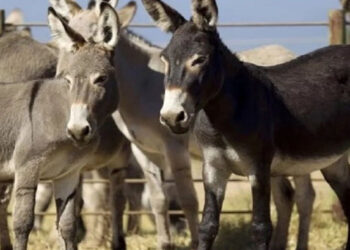The United Nations has called for a record $5 billion appeal to help Afghanistan avert a humanitarian catastrophe as the war-ravaged country is still reeling from the effects of hasty US withdrawal and Taliban takeover.
The appeal is the largest ever for a single nation and nearly a quarter of Afghanistan’s GDP. Around 23 million people – more than half of the country’s population – face acute hunger and need immediate help. Nearly a million children under 5 could face severe malnutrition if they don’t receive help.
The appeal seeks $4.4 billion in humanitarian assistance plus another $623 million for the UN refugee agency to help more than 6 million Afghans who have fled abroad, roughly 15% of Afghanistan’s total population. Even the US has pledged $308 million in humanitarian assistance since the chaotic ending of the war last August.
The UN warns that the aid appeal is a stop-gap measure as the scale of the need is already enormous, and if insufficient action is taken, they will be compelled to seek $10 billion aid next year. It remains to be seen if the international community will respond to the needs for Afghanistan’s future.
The biggest concern is that funding would be used to strengthen the Taliban’s grip on power. The group has ruled with an iron hand since taking over and calls for an inclusive government and respecting human rights have not been fulfilled. Women are barred from acquiring education or taking an active role in public.
The UN insists that the funds will go directly to ordinary Afghans rather than filling the pockets of the Taliban. However, the Taliban are seeking a greater role in the distribution of Afghan aid and have proposed a joint body of its officials with foreign representatives to coordinate billions of dollars in aid. The global community is ramping up aid but insists it should be free from Taliban interference.
Pakistan welcomed the funding pledge to avert collapsing of basic services in the neighbouring country. It has announced to contribute Rs5 billion in aid and even hosted a meeting of the OIC on the matter. The figures are hard to grasp as millions of people are at risk if help is not forthcoming.






























